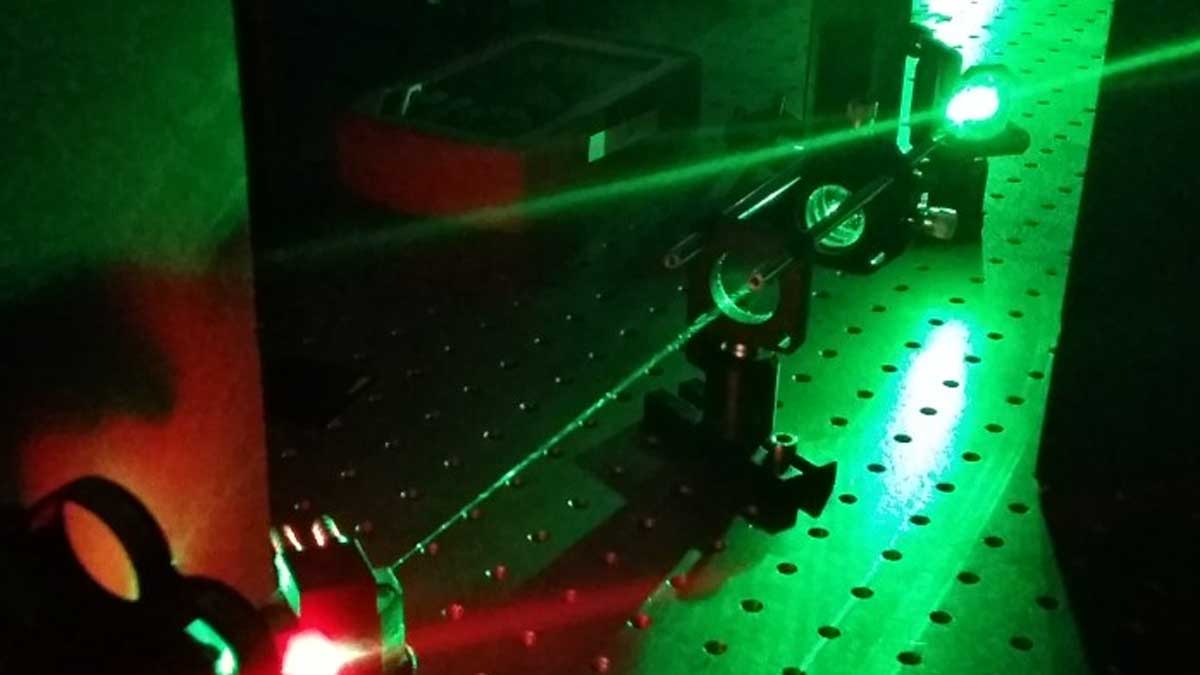Deep Ultraviolet Light Therapies

U-care is a collaborative project combining Heriot-Watt's photonics and biophysics expertise with the University of Bath's expertise in optical fibres and the clinical and translational healthcare technology expertise of the University of Edinburgh. It aims to exploit cutting-edge techniques in laser physics, using deep ultraviolet (UV) light for new therapies based on the light's unique properties.
Bringing together engineers, physical scientists, clinicians and biomedical scientists, U-care will investigate the potential of deep UV light to kill infection and to remove tissues with extreme precision.
Through the project Heriot-Watt scientists will investigate light sources to find the most effective means of producing deep UV light; this light doesn't occur naturally on earth, so the researchers will seek to develop new light sources which are highly compact, robust and low cost. Experts at the University of Bath will design advanced optical fibres capable of delivering short-wavelength deep UV light within the human body, while researchers at Edinburgh University will examine the effects of deep UV light on human cells.
U-care will look to develop therapies which target some of the biggest challenges currently facing medicine: the emergence of drug-resistant ‘super-bugs' and the need for cellular-precision cancer surgery.
Some wavelengths of ultraviolet light are known for their germicidal properties but can cause cancer in human tissues. This is the problem U-care aims to solve. It will work to understand in detail the biophysical mechanisms involved and to develop technologies that generate ultraviolet light at just the right wavelength, where the light remains germicidal but without the harmful effects.
U-care will also develop technologies to deliver this light precisely, designing and manufacturing new types of fibres to safely carry the light inside a patient to exactly where it is needed, without any of the light leaking from the fibre and causing further harm. This capability could be transformative in the treatment of cancer, providing therapies that could reach and remove tumours with unprecedented safety and precision.
The project has the potential to provide a solution to the looming public health crisis of antimicrobial resistance. Co-creating technology and approaches that microbes are unable to resist, U-Care will help to prevent and treat infections in hospitalised patients.
Patient groups, NHS partners, charities and industry are central to the project, and will help to shape the technology and ensure it is safe and effective for patient use. The U-Care team aims to have its first prototype ready for testing in patients within three years.
U-Care is funded by UKRI-EPSRC's 2050 Healthcare Technologies Call. Partners include Coherent Scotland Ltd, Lightpoint Medical Ltd, PowerPhotonic Ltd, Renishaw PLC and University of Michigan.
- Total award: £6.1M
- Funder: UKRI-EPSRC
- Lead: Prof. Robert Thomson
Contact our Global Research, Innovation and Discovery team about research collaboration and business partnership opportunities at GRID@hw.ac.uk